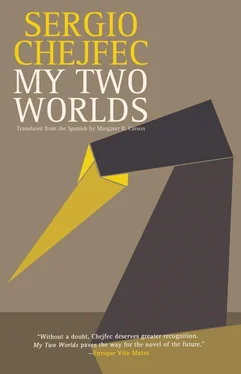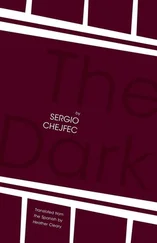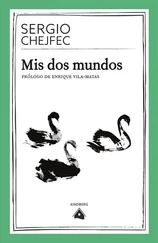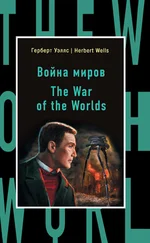That’s why almost everything is leading me to abandon my walks: what I search for, impossible to find, as much as what I discover, practically nothing. And yet an urgent, contradictory force is driving me forward; I cannot renounce walking or stepping out into the street. When I arrive at a given place, my curiosity is triggered at once: it may sound naïve and somewhat vitalistic, but I long to steep myself in the life and customs of the natives, to immerse myself in local habits and idiosyncrasies. A reading to discover, a story to live. But in my mimetic passion there quickly comes the point, which, moreover, arrives sooner and sooner, after I’ve walked no more than a few blocks: it’s the aforementioned weariness, distraction, something I might call “walker’s malaise”—a mixture of rage and emptiness, of thirst and rejection. From then on I act like a zombie: I see people as if I weren’t seeing them; the same applies to the façades of buildings and the far reaches of streets or avenues. I’m capable of appreciating certain details and recognizing worthy specimens from decades or centuries ago, ambiguous on the whole and fairly deteriorated now, even if well cared for, along with cityscapes and social mores and tics that awaken my curiosity and are unique, etc. But as if I’d ended up consumed by the blind traction of my automaton’s stride, intent solely on devouring the pavement until dusk, I instantly forget what I’ve just seen and taken note of or, rather, I toss it all into a jumbled corner of my memory, where everything piles up at random, with no hierarchy or organization.
So though I’m capable of remembering intersections, scenes, episodes, and generalized small bits of reality, I cannot put them in a sequence, let alone provide any reasonable context, any point of reference. What I saw two blocks earlier is on the same level as anything I saw yesterday, for instance, or a few months ago. Nonetheless I keep walking, propelled, or rather drawn onward, by my sense of ambiguity, by the malaise I spoke of earlier. Perhaps experience, strictly speaking, may be nothing but this; I mean, so much walking has diminished my capacity to feel admiration or surprise: the first block of any city triggers memories and comparisons that undermine the illusion or the confidence one normally places in the totality observed. Things cease to be one of a kind and are revealed to be links in a chain.
An interview program was just starting on the television during which recognized figures from the countryside would talk about their beginnings, about their families, or about the customs of yesteryear, as they put it in the lead-in. It was time to get ready for bed, I thought. I headed to the bathroom and was yet again impressed by its impeccable lighting, like an operating room without shadows. As I came out, a man was speaking whose intonations suggested he was getting on in years. He said that even though he had lived his entire life in the country, he’d never gotten over his fear of the dark, and ever since his childhood had thought of a day’s labor — not only his own, but everyone’s — as an attempt to avoid or postpone the coming of the night. He was known, the woman interviewing him said in a fawning tone, for his conversational gifts. I couldn’t tell, however, whether this was more an invitation for him to keep talking than a compliment. The fearful gentleman was silent while he thought of an answer; at first that’s what I supposed, but when several minutes had passed and he still hadn’t spoken, I assumed the program had ended abruptly. In the meantime I went in and out of the bathroom again, folded the map, put it in the backpack, got into bed and turned out the light. My last physical act, that I can remember at least, was turning off the television with the remote control, in case the sound came back on.
As I listened to the deep droning silence of the nighttime street, I naturally started thinking about the following day’s walk. On one hand, I was excited about getting to know the unknown; but also, as I intimated earlier, I felt I had the right to feel disappointed in advance. I thought of the man on the TV program and his fear, which he had been unable to overcome despite having spent his life in the country, where, as we know, one lives with the deepest, and most threatening darkness, so that he’d been subject time and again to these crises, and must necessarily have had infinite opportunities to conquer his fear. The last thoughts I remember having were about the route I’d be taking in the morning. I had high hopes for a perfect day, perhaps because of that I preferred not to visualize the city in advance; nonetheless something pulled me in the opposite direction too, a growing disappointment, unmistakable and hard to counteract, the result of my single, insistent certainty; namely, that my morale as a walker had been in a bad way for some time.
The reasoning that follows may seem a bit abstract, so I’ll expound on it quickly. When I walk, my impression is that a digital sensibility overtakes me, one governed by overlapping windows. I say this not with pride but with annoyance: nothing worse could happen to me, because it affects my intuitive side and feels like a prison sentence. The places or circumstances that have drawn my attention take the form of Internet links, and this isn’t only true for the objects themselves, which are generally urban, part of the life of the street or of the city as a whole, shaped precisely and distinguished from their surroundings, but also the associations they call to mind, the recollection of what is observed, which may be related, kindred, or quite distinct, depending on whichever way these links are formed. On a walk an image will lead me into a memory or into several, and these in turn summon other memories or connected thoughts, often by chance, etc., all creating a delirious branching effect that overwhelms me and leaves me exhausted. I’m a victim, that is, of the early days of the Internet, when wandering or surfing the Web was governed less by destiny or by the efficiency of search engines than it is today, and one drifted among things that were similar, irrelevant, or only loosely related. Until one reached the point of exhaustion over the needlessly prolonged Internet journey, with an ensuing loss of motivation to delve (or in my case, walk) any further, and then the moment of distortion would arrive, or of parallel nature, I don’t know which, when I would notice that every object had essentially turned into a link, and its own materiality had moved into the background, whose depth was virtual, peripheral and free-floating.
The Internet isn’t to blame, that’s obvious, but I carry the scars of having passed through that stage of absurd, free-floating links, when surfing the Web was an exercise in fickle relationships. At first it was an apt metaphor for my behavior during these urban strolls, as I sometimes call them, as well as for the associations that come to mind as I stroll, but then the typical slippage or contamination took place, and the metaphor ceased being descriptive enough to capture its correlative and itself become a symptom. It’s impossible for me to know how different my old-time, pre-Internet perceptions were; they probably were, in diverse ways. Before the Internet, my sense of a city was organized differently: my first impressions were stamped with their origins and the specific times, as it were, of their formation; they were bounded by the passage of time and by new experiences. And, in the resulting sedimentation, each memory retained its relative autonomy. But after the Internet, it happened that the same system formatted my sensibility, which ever since has tended to link events in sequences of familiarity, though these sequences may be forced and often ridiculous. Those sequences of familiarity lead to groupings that are more or less volatile, it’s true, that nonetheless tend to leave what’s unique to each impression on a secondary plane, diluting in part the thickness of the experience.
Читать дальше












